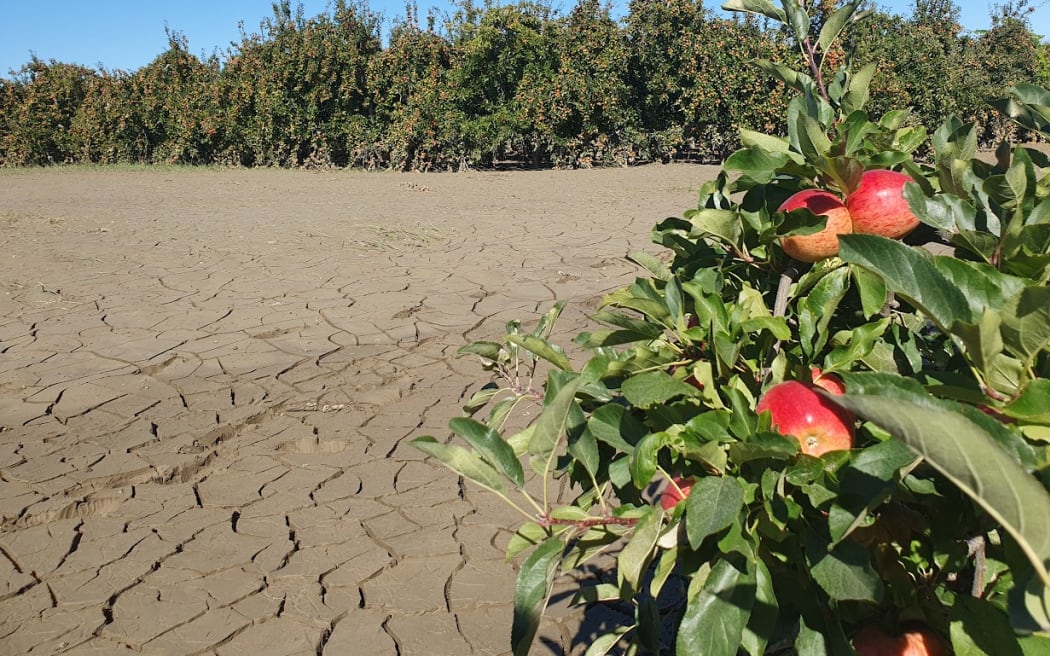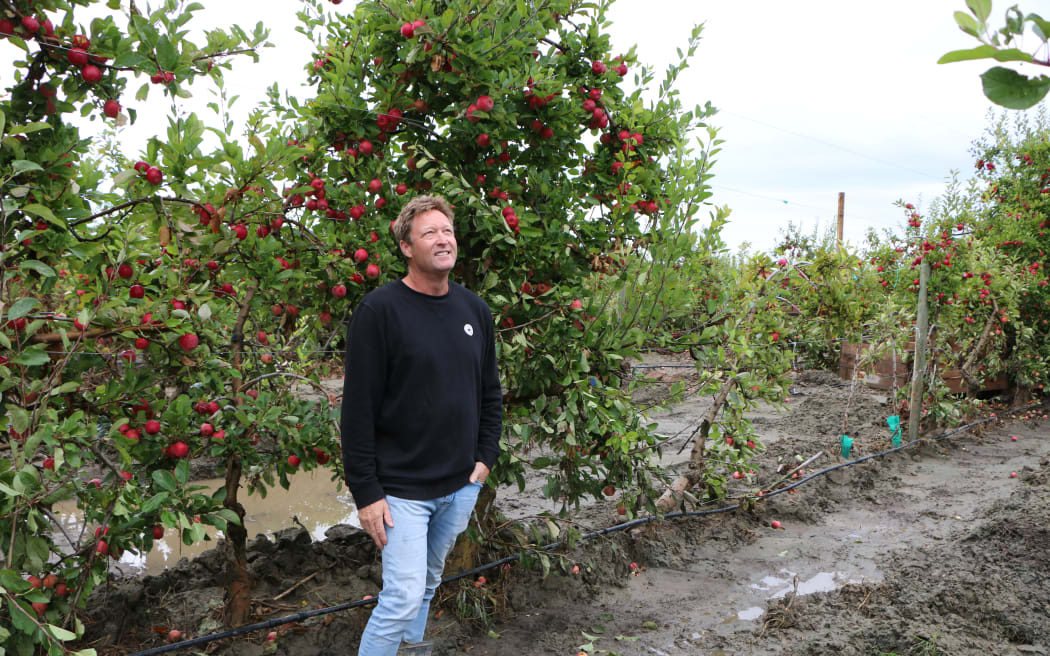Fruit and vegetable growers in Hawke's Bay have had their crops decimated by Cyclone Gabrielle. The Detail looks at what this could mean for what's available on the supermarket shelves.

Silt drying and cracking at a Hawke's Bay orchard Photo: RNZ/Sally Round
Orchards, vineyards and fields of crops in Hawke's Bay have been torn apart by Cyclone Gabrielle, destroying people's homes and livelihoods.
But what are the knock-on effects for consumers?
Hawke's Bay Fruitgrowers' Association president Brydon Nisbet has apple orchards in Puketapu, one of the worst-hit areas. He finally got to see his orchards three days after disaster struck.
"We were kind of preparing for the worst, but believing for the best. We got there and we have a little orchard next to a large kiwifruit block that backs right up to the stopbank. That's pretty much flattened," he tells The Detail.
"A lot of the trees are buried in the silt, my tractor pump's upside down somewhere, you can just see it sticking out, a little tin shed is nowhere to be seen."
He says one of his other orchards is full of sand-like silt. The third is full of water, but luckily that can still be harvested.
"In a weird way, the three blocks that I've got kind of represent the levels of destruction through the industry. There's many blocks [where] the water went right to the top where the infrastructure's flattened...there's the degree I talk about with the silt and then there's guys with orchards that are still standing.
"A lot of crops have just been wiped out...that food is no good now, you can't harvest anything that's been underwater, that's a huge dent in the industry for food, a lot of these growers supply to Watties [and] McCains."

Brydon Nisbet on his Puketapu apple orchard on 24 February 2023. Photo: RNZ / Maja Burry
He says a storm like Gabrielle presents big problems for the industry.
"There's not only the cost of getting rid of the block, but the whole establishment of a new orchard and then the delay of getting an income from that orchard. So it's a huge cost and a lot of the growers are facing that, they can't plant again."
Jerry Prendergast is the president of United Fresh, a group representing New Zealand's fresh fruit and vegetable industry.
"Probably putting it into perspective, if you think about New Zealand, as a major exporter of apples...roughly 15 percent is what comes to the domestic market. So for Hawke's Bay, the export side is going to be devastating for them.
"The real test for us, in New Zealand, and for our export market is what's going to be available later in the year - it's October, November, December."
He says fruit and vegetable prices probably won't be as consistent as they have been.
"You'll see spikes, there'll be a time where maybe you go, wow, maybe I need to leave that on the shelf, I've got to think of an alternative and that's the message we really want to get out, be really flexible with your purchasing.
"You'll then see some time...where broccoli's actually really plentiful because it's come on, we've had some good warm weather, the crops produced well, but we might see some gaps where there were some planting gaps because they had three weeks of weather where they weren't able to plant."
Prendergast says, for instance, if someone is set on buying a head of broccoli they might have to diversify - maybe going for a courgette or head of cabbage instead, as they could be cheaper.
Hear more about why we might have to make menu substitutions in the full podcast episode.
You can find out how to listen to and follow The Detail here.
You can also stay up-to-date by liking us on Facebook or following us on Twitter.

Photo:


